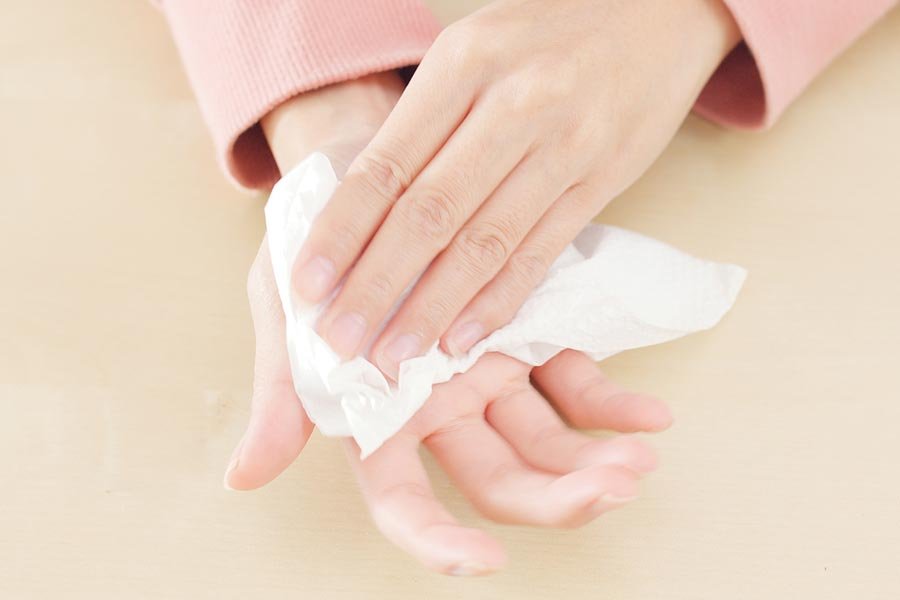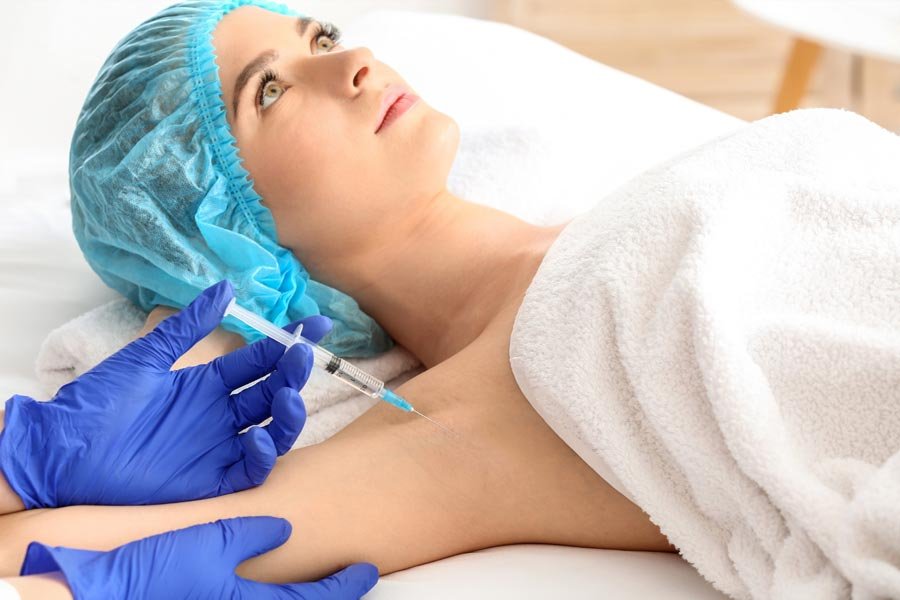Hyperhidrosis

Key points
- Immediate.
- 20 min.
- 4 months approx.
- local.
Hyperhidrosis

- Immediate.
- 20 min.
- 4 months approx.
- local.
Key points
Hyperhidrosis is a problem that affects many people, with excessive sweating. It is divided into primary and secondary, with different causes. Neuromodulators are effective in treating hyperhidrosis by inhibiting the release of acetylcholine. Its application in specific areas has long-lasting and safe effects. Compared to surgeries, it is less invasive and without serious side effects. Consultation with Doctor Nelson Cáceres is essential to determine your suitability.
Hyperhidrosis: a condition that affects quality of life
Hyperhidrosis is a disorder that can significantly impact the quality of life of people who suffer from it. It is characterized by excessive sweat production, beyond what is necessary to regulate body temperature.
Primary and secondary hyperhidrosis: fundamental differences
- Primary hyperhidrosis, also known as essential, usually manifests itself in young people and is characterized by focal sweating in specific areas of the body.
- On the other hand, secondary hyperhidrosis is a symptom of some underlying disease, such as neurological or endocrine disorders, and is usually more generalized.

Factors that influence hyperhidrosis
There are various factors that can influence hyperhidrosis, such as nervous stress, genetics, and the presence of underlying diseases. These elements can trigger or aggravate the problem of excessive sweating, affecting the quality of life of those who experience it.
Treatments for hyperhidrosis
Hyperhidrosis can be treated in a variety of ways, from conventional options to more advanced treatments with neuromodulators.
Conventional treatments for hyperhidrosis
- Use of special antiperspirants to control excessive sweating.
- Measures such as wearing breathable clothing and avoiding situations that may trigger sweating.
Treatment of hyperhidrosis with neuromodulators
Neuromodulators are an effective alternative to inhibit excessive sweating, acting on the release of acetylcholine in the sweat glands.
It is a temporary treatment that blocks sweat production by applying botulinum toxin (Botox) to the desired area, reducing excessive sweating.

How neuromodulators work
- They work by blocking the nerve signal that triggers excessive sweating.
- They allow you to precisely control the amount of sweat produced in the affected areas.
Application process and duration of effects
The administration of neuromodulators is carried out through microinjections in specific areas, and the effects are usually noticeable in a few days, lasting approximately four to six months.
Areas that can be treated
Armpits, palms of the hands, soles of the feet and forehead.
Benefits of treatment with neuromodulators
Neuromodulators offer an effective alternative to treat hyperhidrosis, with several notable benefits:
Comparison with surgical procedures
- It does not require general anesthesia, which reduces the risk associated with surgery.
- Non-invasive process, with microinjections in the affected area.
- Fewer side effects compared to surgery, such as compensatory hypersweating.
Effectiveness and long-term results
Neuromodulators act by inhibiting the release of acetylcholine, which effectively controls excessive sweating. The effects are usually noticeable in a few days and last approximately six months, providing a long-lasting solution for those who suffer from primary hyperhidrosis. Furthermore, as it is a less invasive treatment than surgery, it offers satisfactory results without compromising the patient's quality of life in the long term.
Consultation with Doctor Nelson Cáceres
Consultation with Doctor Nelson Cáceres is essential to determine if hyperhidrosis treatment with neuromodulators is appropriate for each particular case. Here personalized care is provided in the field of aesthetic medicine, ensuring an individualized and professional approach.
How to determine if treatment is appropriate
- Doctor Nelson Cáceres will perform a thorough evaluation of each patient's hyperhidrosis condition.
- Medical history and clinical history will be studied to determine the appropriateness of treatment with neuromodulators.
- Factors such as the extent of excessive sweating and response to previous treatments will be considered.
Personalized care in aesthetic medicine
The personalized aesthetic medicine care provided by Doctor Nelson Cáceres guarantees an individualized and careful approach for each patient. A welcoming and professional environment is provided, where the patient's well-being and comfort is prioritized throughout the process of treating hyperhidrosis with neuromodulators.
Neuromodulator treatments
Share it on your networks
Rated with 5 out of 5 stars basadas en 78 opiniones de clientes.

Contact us
Share it on your networks
Rated with 5 out of 5 stars basadas en 78 opiniones de clientes.





